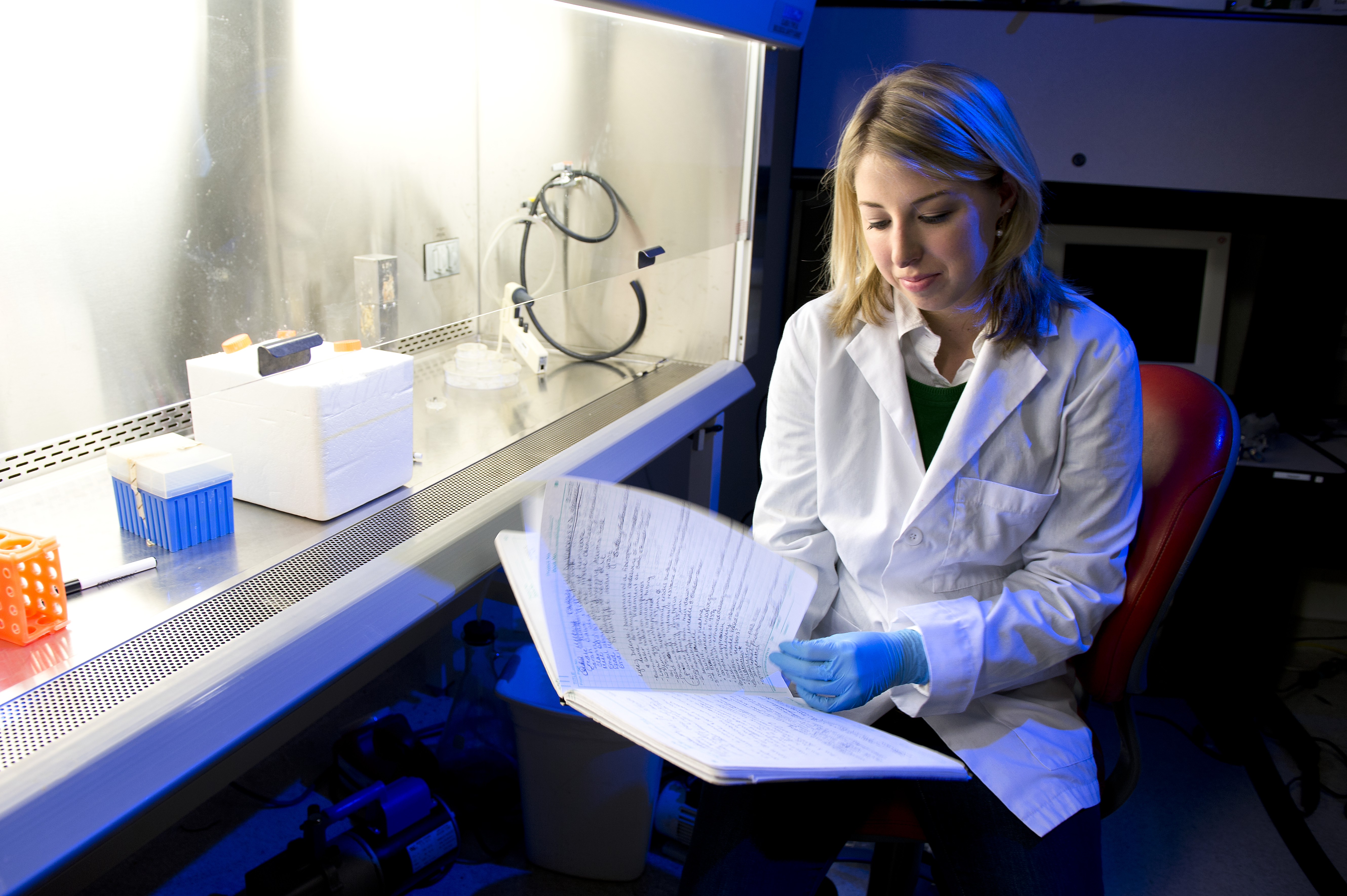Fluid flow research may unlock cancer secrets

Sometimes, good health might be all about the fluids.
In the human body, the channels that fluids take as they migrate through tissues can impact a person's health. Abnormal fluid flow can help account for the development or progression of diseases, such as cancer.
By incorporating these fluid forces into tumor models in a laboratory, cancer cell responses to those forces and to anti-cancer drugs better represent the responses by cells in the body. The knowledge gained from studying these responses is advancing the growing field of personalized medicine that allows each person to be treated somewhat differently.
Researchers worldwide are investigating these physiological responses.
One is Brittany Balhouse, of Blacksburg, Virginia, a doctoral candidate at Virginia Tech, who has worked with Marissa Nichole Rylander, formerly of the Virginia Tech-Wake Forest University School of Biomedical Engineering and Sciences and now with Scott Verbridge, assistant professor in the school of biomedical engineering and sciences and director of the Laboratory for Integrative Tumor Ecology. Rylander is a National Science Foundation CAREER Award recipient for her notable achievements in this area. Verbridge's expertise is in cancer biology, tissue engineering, and nanobiotechnology.
Balhouse is using Rylander's work as a foundation for her current research in the Tissue Engineering, Nanotechnology, and Cancer Research Laboratory at Virginia Tech. She is also continuing some of the work of one of Rylander's previous graduate students, Cara Buchanan.
Buchanan, after earning her Ph.D., now works in Switzerland at the Laboratory of Lymphatic and Cancer Bioengineering at the Ecole Polytechnique Federale of Lausanne under the supervision of Melody Swartz.
Balhouse chose to study at Virginia Tech's School of Biomedical Engineering and Sciences because of its strong partnerships between clinicians, scientists, and engineers. The school is a joint entity with Wake Forest University, housing one of the top 50 medical schools in the country.
Also, the Virginia Tech-Maryland Regional College of Veterinary Medicine and the Edward Via Virginia College of Osteopathic Medicine in Blacksburg, Va., cooperate extensively with ongoing research at SBES.
She has an Institute for Critical Technology and Applied Science Doctoral Scholarship supporting her studies.
When Balhouse started as a graduate student she had the opportunity to be paired with oncologists at Wake Forest Baptist Medical Center, and witnessed some of the latest techniques in surgery and radiation therapy. Additionally, her introduction included several days shadowing clinicians at the veterinary college and the osteopathic school.
Hence, she reinforced her thinking that if she studied and pursued a career in biomedical engineering as opposed to becoming a physician she could "affect millions of people, rather than thousands, by performing excellent research and inspiring others to do the same," Balhouse said.
How can she affect millions? Her study aims to discover potential causes of cancer progression by modeling the tumor, the forces therein, and its progression in the lab.
"We are determining which environmental stresses trigger metastasis. For instance, how fluid forces in the tumor could trigger cancer cells to leave the primary site and form secondary tumors elsewhere in the body, " she said.
The model will also be used for testing current and novel anti-cancer drugs.
The standard way to test anti-cancer drugs before clinical trials is with cancer cells in a Petri dish. However, the Petri dish bears little resemblance to the microenvironment, the mechanical and chemical signals, to which cancer cells are exposed in the tumor.
Consequently, one of Balhouse's major efforts is to engineer the tumor microenvironment, mimicking conditions in the body to better understand the process of tumor growth and features of the environment that lead to progression; the efficacy of new treatments can be tested using these engineered tumor systems. Her model incorporates many of the environmental components that are present in the body so the cells will respond to drugs in a realistic manner ultimately leading to success during clinical trials.
"Our model is unique in its physiological geometry, cellular and material composition, and capability to characterize the tumor response to blood flow as compared to other tumor models currently in use," Balhouse explained.
Other students working with Balhouse are developing nanotechnologies that will selectively kill cancer cells, leaving normal cells unharmed. Their system will eventually be tested in Balhouse's model and she will compare its effectiveness compared to current chemotherapeutics.
"Imagine all the time, money, and, most importantly, lives that could be saved by simply testing novel therapies in a more physiologically representative model first," Balhouse added.




